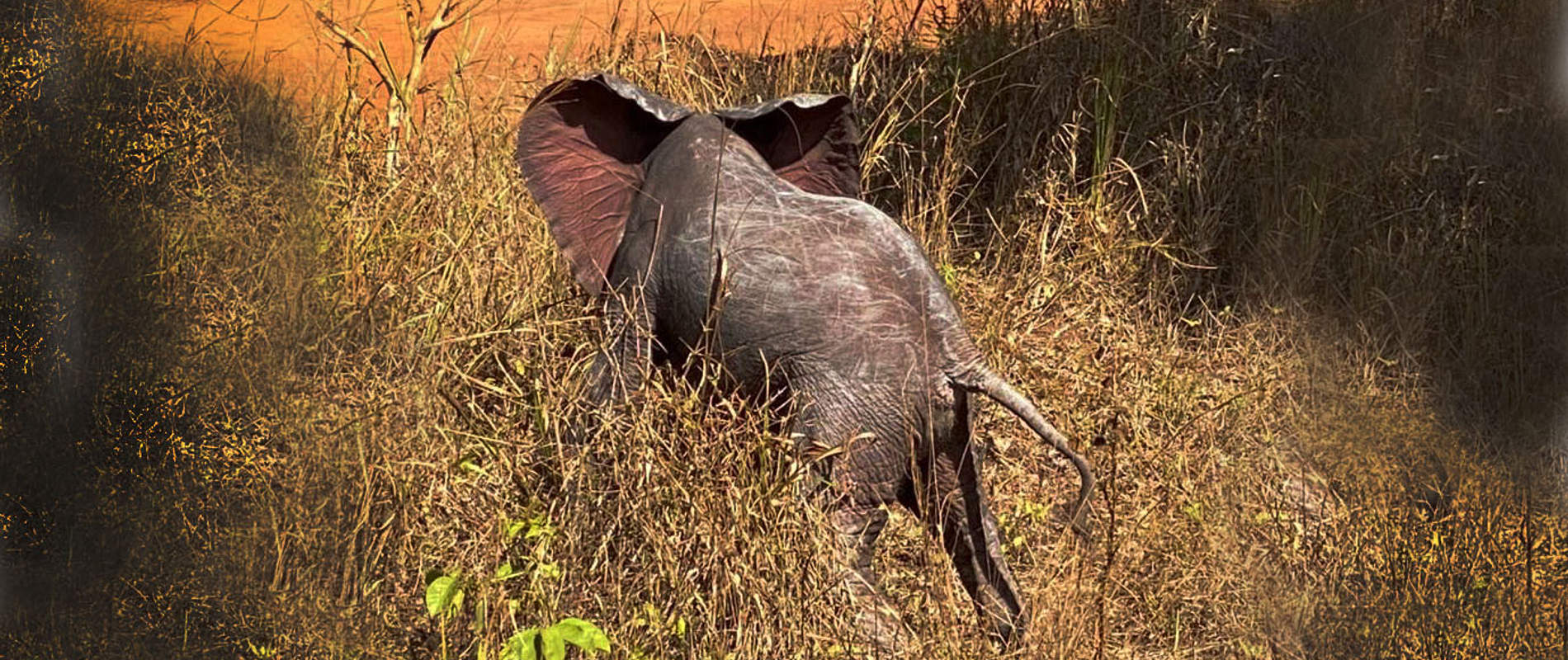When it comes to working with wildlife, uncertainty is the only certainty. We enter each day prepared for plot twists, but this particular turn of events took us by surprise.
On 16th April, we were called to treat a snared elephant in Shimba Hills National Reserve. She had a cable looped taut around her front leg, creating a grievous wound that cut close to the bone. The injury left her severely incapicated, to the degree that she had fallen away from her herd to remain close to water. Fortunately, our Sky Vet team was able to intervene in time and the elephant was soon back on her feet (you can read the full account here). We went into that treatment knowing her life was on the line — but we couldn’t have imagined that two lives were actually at stake.

She was a young female whose teats suggested she might be pregnant, but no one imagined it was imminent

After the cable snare was cut from her leg, green clay was administered followed by antibiotics and anti-inflammatories
Just days after the treatment, one of our De-Snaring Teams deployed with KWS rangers to continue to rake the area, encountering a most surprising sight: a tiny baby elephant, fresh from the womb and all alone. He was very relieved to find company, and latched onto his rescuers with the guileless innocence of a newborn. The baby was discovered on the grounds of a private property, whose land forms the vital corridor between the Shimba Hills National Reserve and Mwaluganje, an area of community land that has been set aside as a conservancy for elephants and all wildlife. It seems that he shot under the fence shortly after his birth and became disoriented.
It took some investigating to discover the identity of the calf’s mother. There are lots of elephants in the area, and while we knew the female we had just treated was pregnant, she didn’t appear to be imminently due. However, it became abundantly clear that the baby was hers: The amniotic sac was found near the airstrip, right in the area where she had remained to recuperate. With the parentage confirmed, the team set about returning the baby to his mother.
This was a delicate situation that required a practiced approach, but the KWS/SWT team has lots of experience in wildlife reunions. Remaining on the sidelines, they encouraged the baby over to his mother’s side. It took a few tries, but eventually the connection was made. While the baby initially struggled to reach her teats — we wonder if he was born premature, hastened into the world by his mother’s ordeal — mum went into protective mode and whisked him away, which is always a good sign.

The fresh baby latched onto his rescuers with the guileless innocence of a newborn

The amniotic sac was later found by the rangers
Given the drama surrounding the birth, our team and KWS continued to shadow the pair the next day. Everything we saw left us optimistic: Despite her injury, the mum was already surprisingly mobile. She and her baby were travelling about four kilometres in a day. The following day's tracks revealed that they had been fraternising with a herd and joined them, which is just the development we had been hoping for. We are optimistic mum is doing ok, as little tiny foot prints around the waterhole overnight suggest they are still in the vicinity, but choosing to spend their days deep in the forest and coming to the waterhole at night. We didn’t want our continued patrolling presence to force her to be on the move any more than necessary, so we are giving them space. They are in a protected forest, close to water, and — equally important — close to friends. She won’t have to raise this baby alone as she recovers; the rest of her herd will be babysitters, as is the wonderful way of elephants.
While we are giving mum and baby the space they need, we will continue to monitor their situation. Should mum require further treatment we are poised to step in and offer our support.
